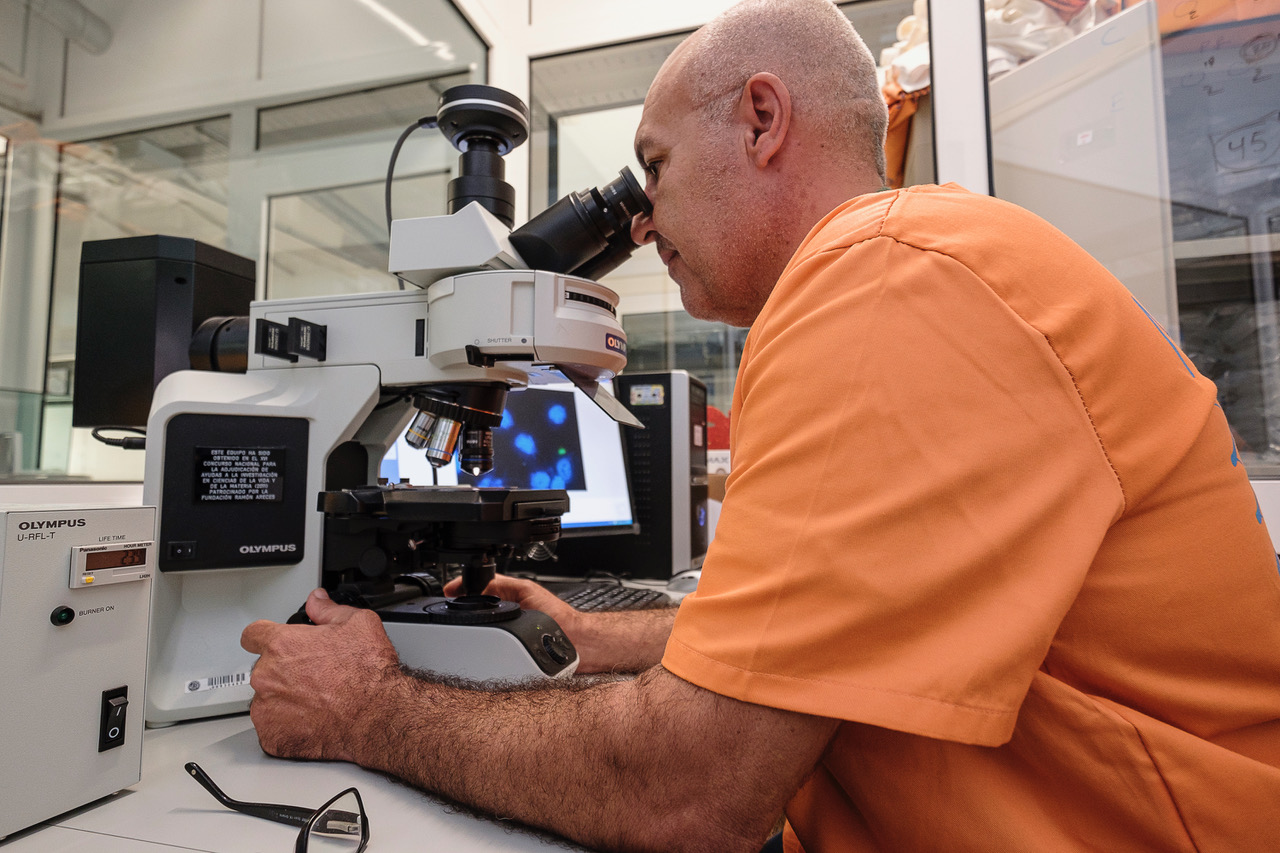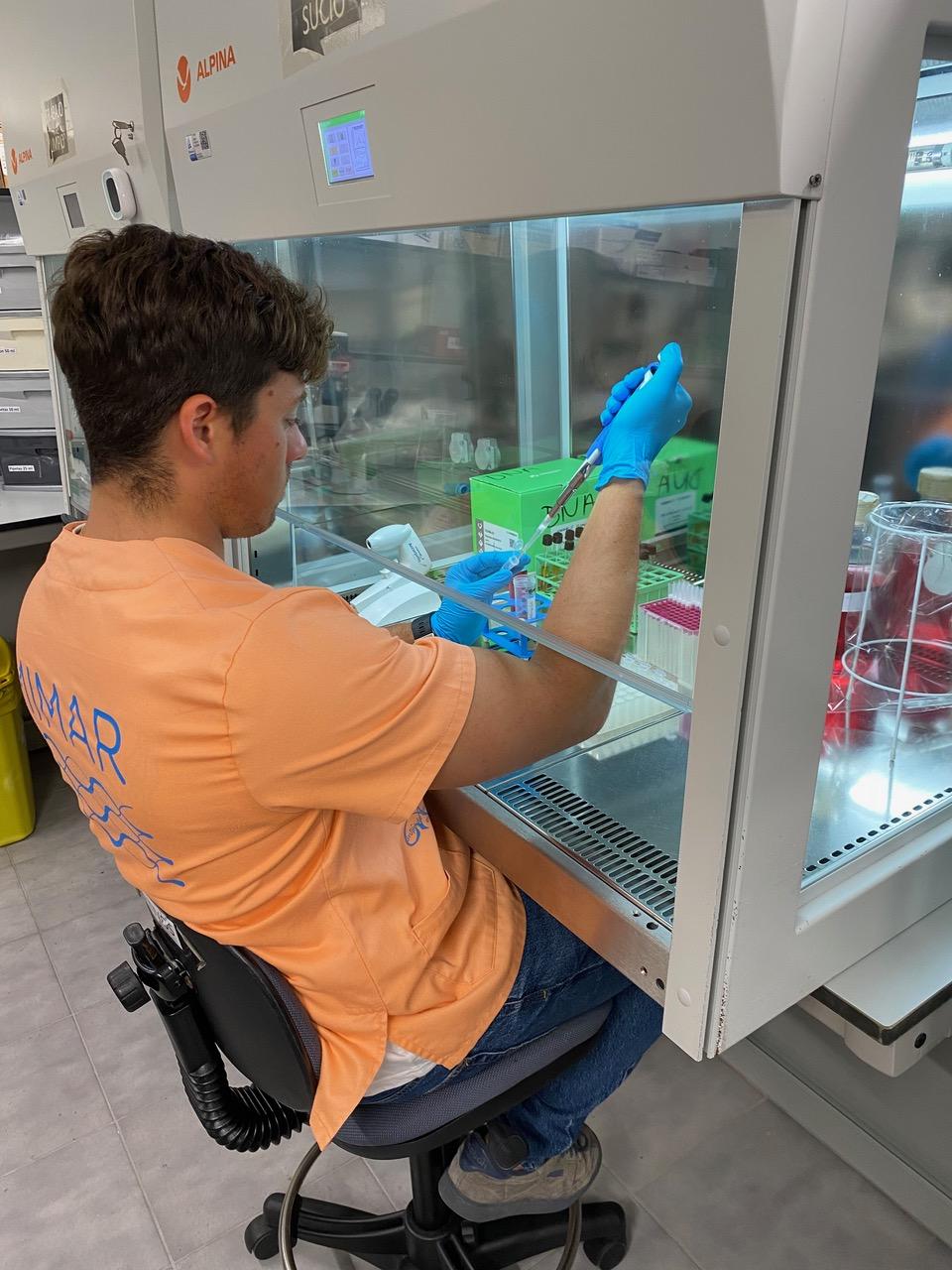Led by Dr. Felix Acosta, from the Aquaculture Research Group (GIA) of the ULPGC institute, this study, recognised by the Spanish Aquaculture Business Association (APROMAR) as the ‘Most relevant work in the sector in 2023’, has counted with the collaboration of scientists from the European University of the Atlantic, the Nord University of Norway and the University of São Paulo.
Research led by the Aquaculture Research Group (known by its Spanish acronym as GIA), attached to the ECOAQUA Institute of the University of Las Palmas de Gran Canaria (ULPGC), has revealed how the use of certain probiotics (specifically, the bacterium Bacillus velezensis) in the feed of farmed sea bass leads to a significant reduction in the incidence of diseases, which entails an improvement in the productivity of the sector.
The study, led by Professor of Animal Health, Dr. Félix Acosta, has been recognised as the 'Most relevant work of 2023' by the Spanish Aquaculture Business Association (known by its Spanish acronym as APROMAR).
The results were published in the journal Fish and Shellfish Immunology. The student of the PhD programme in Sustainable Aquaculture and Marine Ecosystems, Luis Monzón-Atienza, on whose thesis the analysis is based, is the main author of the article, which also counted with the collaboration of Félix Acosta, as director, and Daniel Montero in the research team, Álvaro Fernández Montero and Jimena Bravo, from the GIA group, and other prominent scientists, such as the Galician microbiologist José Ramos Vivas, from the European University of the Atlantic, Jorge Galindo-Villegas, from the Faculty of Biosciences and Aquaculture of the Nord University of Norway and Ives Charlie-Silva from the Institute of Biomedical Sciences of the University of São Paulo, Brazil.
 Félix Acosta, in ECOAQUA laboratories at the Marine Science and Technology Park in Taliarte.
Félix Acosta, in ECOAQUA laboratories at the Marine Science and Technology Park in Taliarte.
The analysis consisted of feeding sea bass, the second most important species in Spanish aquaculture after mussels, with a diet supplemented with this probiotic and then evaluating immunological parameters and testing for infection with common pathogens.
The results revealed significant improvements in the immunological response of the treated fish, as well as increased survival against pathogens, suggesting that the incorporation of probiotics in the diet of sea bass can significantly reduce the losses in the sector due to bacterial diseases.

Luis Monzón-Atienza, in ECOAQUA laboratories at the Marine Science and Technology Park in Taliarte.
In the first phase of the research, supplementation of the sea bass diet with Bacillus velezensis D-18 was carried out in order to evaluate various immunological parameters. These analyses already revealed a significant improvement in all parameters measured in the fish fed probiotic diet.
The scientists then subjected fish fed probiotic-supplemented and non-probiotic-supplemented diet to an infection with a common aquaculture pathogen in order to evaluate the response of the probiotic-fed fish. As a result, the researchers found that the sea bass showed increased survival against the pathogen compared to those that did not receive the probiotic diet, a significant increase in immune and lytic activities, as well as an improvement in the expression of genes related to the immune response.


